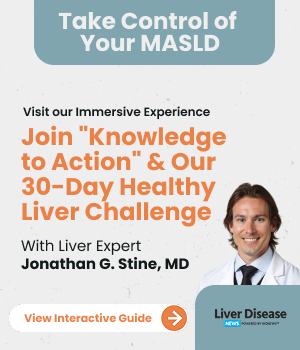Elafibranor for PBC may become Genfit’s first approved molecule
FDA expected to make decision on therapy this summer

Elafibranor, an oral molecule under regulatory review as a new second-line treatment for adults with primary biliary cholangitis (PBC), may become the first candidate developed by Genfit to reach the market.
A decision from the U.S. Food and Drug Administration (FDA) about whether to approve the therapy for adults who failed to respond to or didn’t tolerate first-line treatments is expected early this summer. The agency granted the application priority review in December when a Prescription Drug User Fee Act (PDUFA) action date, or the date by which a decision should be made, was set for June 10.
Priority review is given to therapies that outperform current treatments for serious medical conditions to make them available to patients faster by shortening the standard review process to six months.
“We are now fast approaching the PDUFA action date for elafibranor and this means that, in 2024, Genfit could reach another key milestone with the first molecule developed in-house being made available to patients,” Pascal Prigent, CEO of Genfit, said in a company press release.
Similar applications are under review in the European Union and the U.K.
The therapy’s global development, manufacturing, and commercialization rights were acquired by Ipsen in 2021, and Genfit started earning milestone payments for elafibranor once regulators in the U.S. and Europe agreed to review the applications.
“Approval and commercialization [of elafibranor] would mean that we would receive additional milestones and a regular stream of royalty payments, which will be used to finance our pipeline now mainly focused on Acute-on-Chronic Liver Failure,” Prigent said. Acute-on-chronic liver failure is a life-threatening complication of irreversible liver scarring, or cirrhosis, which can also occur with PBC. It’s marked by acute failure of the liver or other organs and is usually associated with high levels of inflammation.
How does elafibranor work in PBC?
A feature of PBC is chronic cholangitis, or inflammation in the ducts that carry the digestive fluid bile from the liver to the intestines. This leads to bile accumulating to toxic levels in the liver, damaging it, and bile acid leaking into the bloodstream. Without effective treatment, the disease can result in cirrhosis and liver failure.
Elafibranor activates certain subtypes of PPARs, proteins that regulate gene activity related to processes that contribute to liver damage in PBC, including inflammation and scarring.
Ipsen’s regulatory filings were backed by data from the Genfit-sponsored Phase 3 ELATIVE clinical trial (NCT04526665), which tested 80 mg of elafibranor against a placebo, each taken once a day, in 161 adult PBC patients who responded inadequately to or didn’t tolerate ursodeoxycholic acid (UDCA), the standard first treatment. The patients who had an inadequate response to UDCA continued to receive it in the trial, but those who hadn’t tolerated it well didn’t.
The study’s main goal was to evaluate the proportion of patients in either group who achieved a biochemical treatment response — or reductions in alkaline phosphatase (ALP) and bilirubin, two biomarkers of disease progression — after a year. Specifically, a responder had to achieve blood ALP levels of less than 1.67 times the upper limit of normal with at least a 15% reduction from the study’s start, and show that blood bilirubin levels had normalized.
Ipsen and Genfit announced topline results last June, which showed the trial met its main goal.
The final published results showed 51% of patients given elafibranor achieved a treatment response, which was a significant difference from the placebo group where only 4% were considered responders.
Significantly more patients on elafibranor (15%) achieved a complete normalization of blood ALP levels compared with those on a placebo (0%), meeting a key secondary goal. Reductions in ALP levels with elafibranor were seen as soon as a month after starting treatment and were maintained through a year.
Greater reductions in self-reported itch, a common PBC symptom, were observed with elafibranor over a placebo, but the differences weren’t statistically significant.
Elafibranor was generally well tolerated, with the most frequent side effects being abdominal pain, diarrhea, nausea, and vomiting.
ELATIVE’s open-label extension period is ongoing, with all the participants receiving daily elafibranor for up to five more years. This part of the trial is being sponsored by Ipsen, which has since launched another placebo-controlled Phase 3 trial called ELFIDENCE (NCT06016842) . It’s designed to evaluate elafibranor’s long-term safety and efficacy in a similar patient population, for up to seven years. The study is still seeking up to about 450 PBC patients and sites in the U.S. are open.
The company is also sponsoring a Phase 2 trial dubbed ELMWOOD (NCT05627362) to test elafibranor in people with primary sclerosing cholangitis (PSC), another form of chronic cholangitis for which there is no treatment for slowing disease progression. The trial is recruiting up to 60 patients at sites in the U.S., Canada, and Europe.








